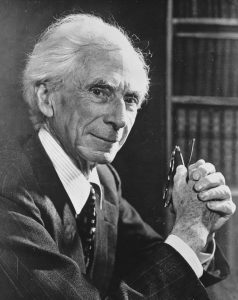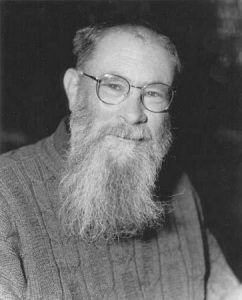4 Skepticism
Daniel Massey
Chapter Learning Outcomes
Upon completion of this chapter, readers will be able to:
- Differentiate global skepticism and external-world skepticism by the scope of their doubts.
- Explain the role of skeptical hypotheses in arguments for external-world skepticism.
- Construct original skeptical hypotheses modeled on those discussed.
- Analyze the Moorean and contextualist responses to skepticism, recognizing how Moorean responses are defiant while contextualist responses are concessive.
Skepticism and Its Scope
Skeptics, as we will use the term, deny knowledge. A skeptic need not deny that free will is real or that God exists but will deny that anyone knows whether either of these is the case.
Skeptics are a variety. Some have limited targets. Some deny only that we have knowledge of what is right and wrong. Others deny only that we have knowledge about the future. But some skeptics are more ambitious, casting the skeptical net more widely. Global skeptics deny that we can have any knowledge at all, [1] and may even deny that we know whether skepticism is true. Such a radical skepticism is bound to elicit derision. It seems unrealistic, impractical, and perhaps even self-refuting. In fact, very few philosophers have been global skeptics. But even anti-skeptics have been enamored of the view, seeing it (and potential refutations of it) as a way of better understanding what it is to have knowledge in the first place.

Our attention will be on one particular kind of skepticism—one that falls short of global skepticism while still denying that we know much of what we think we know—along with one particularly prominent style of argument in its favor. [2] We will then consider two influential responses to this form of skepticism.
External-World Skepticism
You likely believe a great number of things—that you are presently on or near the surface of the earth; that you are human; that there are plants, animals, and other humans; and that their lives have likewise unfolded in close proximity to the earth. These unremarkable beliefs have something in common: you believe them based on sensory experience. You have likely seen, heard, or felt dogs, people, and even planets. On the basis of such experiences, you have come to believe a great number of things about such objects. You know of their existence through your experiences, but their existence continues unabated even when you are not experiencing them. They are, philosophically speaking, external objects, objects that exist in the external world (the world external to our minds). The skeptic we will consider denies that we can have knowledge of any such objects because all the available evidence of sense experience is compatible with no such objects existing. This form of skepticism is called external-world skepticism (hereafter “skepticism” for short).
Let’s start with the fact that experiences of an object are compatible with the non-existence of that object. We often have experiences of things that turn out not to exist. If nothing else, our dreams consist in experiences of objects, many of which do not exist. I may dream of a puppy and be sad to find when I wake that all my experiences of the puppy were figments of my dream. Experience alone does not entail that the things we experience exist.

Now consider the following possibility. You have had a set of experiences for some years, all of which are perfectly coherent. When you have had experiences of puppies, you at least sometimes have further experiences of those same puppies, which have grown and developed in a way consistent with their being real animals. All your experiences perfectly mesh together, and nothing about those experiences suggests anything other than that they are the experiences of external objects. But what guarantees this to be so? What guarantees that you are not having a long, perfectly coherent dream rather than the life you take yourself to have led? French philosopher René Descartes (1596–1650) famously despaired of finding some evidence that could distinguish being awake from having such a dream ([1641] 1985, First Meditation). We will call this hypothesis and others like it skeptical hypotheses. The skeptic contends that if you cannot eliminate such possibilities (the possibilities entertained by skeptical hypotheses), that if you cannot be absolutely certain of what you know, then you cannot know that the external world exists.
A properly crafted skeptical hypothesis is devious. You might conjecture that if your life to this point had been a dream, then you would not have felt pain and kept dreaming, knowing that pain typically wakes a sleeping human. But this alleged fact about the sleeping habits of human beings is itself something you have “learned” through experience. And it is experience itself that is being thrown into doubt. For all you know, this fact about the sleeping habits of human beings is no fact at all, but merely another figment of your dream. The skeptic claims that since experience is our only available source of evidence, and since experience cannot distinguish between being awake and dreaming, we cannot know we are awake. That is, we cannot know that the external world exists. Appeals to facts about the external world “learned” through experience will be powerless to help (Stroud 1984, 8).
Let’s represent this skeptical argument as follows:
-
Nothing in experience can eliminate the possibility that your life has been a long, perfectly coherent dream.
-
Therefore, you do not know that the external world exists.
This is a common style of skeptical argument. Other arguments in favor of skepticism have been put forward, and a staggering variety of responses to this argument (and other skeptical arguments) can be found throughout the history of philosophy. We will now turn our attention to two such responses from recent philosophers.
Box 1 – Famous Skeptical Hypotheses
Skeptical hypotheses are scenarios compatible with all possible evidence yet inconsistent with our ordinary beliefs. The possibility that all our experiences have been those of a long, perfectly coherent dream is one skeptical hypothesis, but others have occurred throughout the history of philosophy and even in popular culture.

Zhuangzi’s butterfly dream.
The Chinese Daoist philosopher Zhuang Zhou, also known as Zhuangzi (ca. 369–286 BCE), dreamed that he was a butterfly. Upon awakening, he considered the possibility that instead, he was in fact a butterfly dreaming he was Zhuangzi (2013, 18). No available evidence seems to be able to distinguish between his being a human dreaming he is a butterfly and his being a butterfly dreaming he is a human.
The evil demon.
Another skeptical hypothesis considered by Descartes ([1641] 1985, First Meditation). Here an evil demon with godlike powers uses those powers to deceive you in all your beliefs. What could you know if a near-omnipotent being wanted you to know nothing?

Brain in a vat.
A skeptical hypothesis formulated by the contemporary American philosopher Gilbert Harman (1973) and popularized by the American philosopher Hilary Putnam (1926–2016). In this scenario, you are a disembodied brain suspended in a nutritive inside a vat while powerful computers overseen by scientists feed you experiences of an ordinary human life (Putnam 1981). The 1999 science-fiction movie The Matrix adapted the brain-in-a-vat scenario, with the protagonist managing (due to the intervention of others) to escape.
Moore against Skepticism
One important response to this style of argument comes from the British philosopher G. E. Moore (1873–1958), known for his commonsense approach to philosophical problems. [3] Among his many philosophical accomplishments was to give several powerful responses to skepticism based on an appeal to common sense. We will look at two forms of this Moorean response to skepticism.
In his “Proof of an External World,” Moore claims to be able to demonstrate (contrary to the skeptical view) the existence of the external world—to prove that the world of ordinary objects and people has an existence outside of our experiences. He gives two such “proofs” to illustrate his general approach. Holding up a hand, he claims to know that he has a hand. Holding up his other hand, he claims to also know that he has a second hand. Since hands are ordinary objects existing beyond our experiences of them, Moore infers he has proven the existence of at least two external objects. Our knowledge of the external world is secured! (Moore [1939] 1963, 144).

This may seem to have an air of trickery about it. The skeptic challenges us to prove that we are not dreaming, that our entire life has not been a long yet perfectly coherent set of experiences corresponding to nothing beyond them. Moore’s holding up of his hands and declaring himself to know he has hands seems to entirely ignore the challenge put before him by the skeptical hypothesis, and so to miss the point. However, Moore was not missing the point. His aim is to challenge a sometimes-unstated assumption in the skeptic’s argument. Consider our presentation of the skeptical argument again. Moore does not challenge the premise (P) but instead challenges the inference from the premise (P) to the conclusion (C). The skeptical argument, as presented, assumes that if you cannot prove that your life has not been a long, perfectly coherent dream, then you do not know all those things you normally take yourself to know on the basis of your experiences. That is, it assumes that if you cannot definitively eliminate the possibility that your life is a dream, then you do not know that you are awake or that anything beyond your experiences really exists.
Moore makes the following contentions: (a) that he can know that external objects exist even if he cannot definitively eliminate the possibility that he is dreaming; (b) that our ordinary practices of taking ourselves and others to know things do not require that we meet such skeptical challenges; and (c) that ordinary standards are the only ones that matter, and so they are the standards of evidence in play whenever we are faced with doubts (Moore [1939] 1963, 145). Moore advocates fallibilism about knowledge, the view that you may know something despite the possibility of being wrong. The fallibilist does not accept the requirement that skeptical hypotheses be definitively ruled out before we know that the external world exists. It may suffice if we can manage to establish that they are improbable.
Consider again Moore’s claim that he has a hand. He holds up his hand and claims that this is sufficient proof of its existence. He knows he has a hand because, well, there it is. Someone may doubt that he has a hand. Some such doubts may be reasonable or at least intelligible. If someone were to doubt that Moore had a hand because the light in the room was dim and perhaps Moore had held up a small statue rather than his hand, then Moore would accept the need to respond to this doubt. He could not count as knowing he has a hand if he is unable to show that what he held up was not a small statue. But there are clear ways of making such a distinction. He can look more closely at his hand in better lighting. He can touch his hand and see whether it feels like flesh or stone. There are any number of ways he could respond to this doubt and thus retain his title to knowledge (Moore [1939] 1963, 145).
But in the case of the skeptic’s doubts, no such responses are possible. This is by the skeptic’s design. The skeptical hypothesis is described so that there is no way to distinguish it from being awake. Many philosophers, of course, have tried to find such a distinction. Moore’s response, however, is simply to deny that such a doubt requires a response, and to deny that we must be able to distinguish the dream hypothesis from the ordinary hypothesis. We can know there is an external world because we can know we have hands. We can know we have hands because we can produce them when and if our title to knowledge of their existence comes into question. We cannot prove they exist in the strong sense demanded by the skeptic, but there is no obvious reason to think we must do so to count as knowing they exist (Moore [1939] 1963, 148). Fallibilism must be considered.
Moore is also known for another response to skepticism (Moore [1959] 1963). Here he considers what a skeptical argument does: it presents a series of claims which (according to the skeptic) force us to accept a skeptical conclusion. To illustrate his point, Moore borrows an example from fellow British philosopher Bertrand Russell (1872–1970):

- I do not know immediately that the pencil exists.
- Its existence does not follow deductively (i.e., with certainty) from anything known immediately.
- My belief in it then is based on “analogical or inductive” (non-deductive) reasoning.
- What is so based is not “certain knowledge.”
- Therefore, I do not know the pencil exists.
This pattern of argument is a familiar one. Premises (1)–(4) tell us that our knowledge of a pencil cannot be based directly on experience, or deduction from anything known on the basis of experience, since we might be dreaming all our pencil experiences. It is at best based on some other (non-deductive) type of reasoning, and beliefs based on these other types of reasoning do not count as “certain knowledge.” Hence, we cannot know that the pencil exists.
Moore notes that this argument does not establish its conclusion in the sense of showing that accepting it is the reasonable course. Arguments generally force us to choose between either accepting the premises (and therefore the conclusion) or rejecting the conclusion (by rejecting one or more premises). The choice, then, is between accepting some number of philosophical claims (given by the premises) or accepting our ordinary claim to knowledge (i.e., rejecting the conclusion). Moore maintains that, considered in this light, the reasonable choice is to reject the conclusion, hence to reject one or more premises, and to maintain our ordinary claim to knowledge.
Indeed, this understates the failure of the argument to make acceptance of the conclusion reasonable. You may not be able to identify exactly what is wrong with the premises, nor marshal any strong arguments against any one of them in particular, and yet you may reasonably maintain that some-premise-or-other–I-know-not-which is false rather than accept the conclusion that you do not know that pencils exist. It is quite reasonable to feel certain that pencils exist, more reasonable than to maintain that each and all of premises (1)–(4), a set of controversial philosophical claims, are true. If Moore is right, then a skeptical argument can only pit a set of philosophically motivated premises against our ordinary, commonsense claims to knowledge, but it can never declare victory. It will always be more reasonable to believe we know that pencils and other external objects exist than accept the difficult, abstruse, controversial premises of skeptical arguments. [4]
Box 2 – To Modus Tollens a Modus Ponens
Moore’s second response to the skeptical argument employs a general argumentative technique that is very useful to learn. Take any propositions p and q . Consider the common argument form that logicians (and philosophers generally) call modus ponens (Latin for “mode that affirms”): [5]
Modus ponens
If p then q.
p
Therefore, q.
This is a (deductively) valid argument form. Logicians use the term “valid” differently from its everyday usage. To say that an argument is valid (in the logician’s sense) means the following: under the assumption that all of the premises are true, it follows with certainty that the conclusion is also true. Apply this idea to modus ponens : assuming that p is true, and that if p then q , it follows with certainty that q is true.
However, it is possible to convert modus ponens into another (deductively) valid argument form by swapping the positions of p and q in the second and third lines, then negating them both (leaving the “if-then” premise untouched). Logicians call this form modus tollens (Latin for “mode that denies”):
Modus tollens
If p then q.
Not-q
Therefore, not-p.
So, upon encountering any modus ponens argument, one logically acceptable option is to oppose it with a corresponding modus tollens argument. As philosophers often say, you can always “modus tollens a modus ponens.” Of course, only one of the two arguments can be “sound” in the logician’s sense (i.e., valid plus true premises—features which jointly guarantee a true conclusion). Since both arguments are valid and share a premise (“If p then q ”), choosing which argument to accept (if either) comes down to the premise on which they differ ( p vs. not-q ). The deciding factor then, is whether p or not-q is the more plausible proposition to take as a starting point. This is where Moore’s “commonsense” strategy comes into play.
Challenge exercise: Try recasting the skeptic’s argument in modus ponens form. Then see if you can put Moore’s second response into a corresponding modus tollens form. After doing so, identify the premises on which the two arguments differ, then reflect on which one of them you find more plausible and why.
The Contextualist Concession
Moore’s responses are defiant. He seeks to undermine skepticism by rejecting a key premise implicitly employed in the skeptical argument and even by undermining the power of such arguments to ever make it reasonable to accept their conclusion. Many philosophers, however, have found Moore’s responses unpersuasive. Canadian philosopher Barry Stroud (1935–2019) notes that much of the ordinary practice of taking ourselves and others to know things requires that those who know something be able to eliminate contrary possibilities (1984, 18). For instance, if I know that the yellow bird I see outside my window is a canary, then I must know it is not a goldfinch. This is how we normally regard claims to knowledge. Someone who claims to know that the yellow bird outside her window is a canary but who also admits that it might be a goldfinch would not be regarded as someone who knows that the bird is a canary. Likewise, when Moore says that he knows he has a hand but also admits he cannot eliminate the possibility that he is dreaming, many philosophers regard him as confused as well. In the normal case, we require that we be able to eliminate alternatives compatible with our current evidence. Why should things be any different when the alternative is a skeptical hypothesis?
The contextualist response attempts to split the difference. This response admits that, by our ordinary standards of knowledge, the dream hypothesis does not need to be ruled out. In ordinary life, we can know perfectly well that tables, chairs, trees, other people, and even G. E. Moore’s hands exist. But, at the same time, when skeptical doubts are raised, as they are in a philosophy classroom or while reading a philosophy book, then the standards in play shift and become more demanding. Indeed, they become demanding enough to vindicate skepticism. We can have knowledge of the external world, but only as long as some skeptic does not shift the standards of evidence and thereby deprive us of that knowledge. This is the contextualist response to skepticism. It concedes that skepticism is correct when we are operating under standards that would have us eliminate skeptical hypotheses but is incorrect when we are operating under the laxer standards of day-to-day life.

Contextualists differ in their understanding of when and how the standards for knowledge shift, and even what it means for there to be shifting standards for knowing. We will turn our attention to just one way of working out contextualism as found in the work of the American philosopher David Lewis (1941–2001). In his view, the standards in play are those in a conversation; shifts in those standards are due to changes in the conversation. The thought that conversations can set epistemic standards may seem strange, but before digging into the details of Lewis’s views, consider a simple example unrelated to knowledge. Amy, looking at a baby elephant standing next to a dog, may say, “The baby elephant is big.” She will be right. Compared to the dog, the baby elephant is big. But if she were to say again, “The baby elephant is big,” while it was standing next to an adult elephant, she would be wrong. Compared to the adult elephant, the baby elephant is not big. Whether or not the baby elephant counts as “big” depends on the context in which one makes the claim.
Of course, as the conversation moves along, what we should say about the baby elephant may as well. If Amy is at the zoo and her friend says, “The baby elephant is small,” while pointing out both the baby and adult elephants, then her friend says something true. Once the friend brings the focus of the conversation to the adult elephant, it would be daft of Amy to say again that “The baby elephant is big.” The conversation has changed what is needed for the sentence “The baby elephant is big” to count as true, and given the change, subsequent claims that “The baby elephant is big” will be false, even as prior such claims were true. (We will return to this example of Richard Feldman’s shortly.)
In a somewhat similar way, Lewis believes that the truth of attributions of knowledge varies with shifts in the conversation. In a conversation, a speaker may attribute knowledge to herself or to some other person (including someone who is not part of the conversation). It will be perfectly proper, given the state of the conversation, to ignore a wide range of possibilities during the conversation (Lewis 1996, 544). If you and I have a conversation about the safety of the drinking water in our hometown, we properly ignore many possibilities even as we must attend to others. If I claim to know the water is safe to drink, I must be able to eliminate the salient (that is, easily noticeable) possibilities, including the possibility that the water contains unsafe quantities of lead. Yet we also presuppose that a number of possibilities are false, for instance the possibility that the fluoride in our hometown’s drinking water may have been added by a secret cabal of aliens intent on stealing our bodily fluids. Still, my utterance of “I know the drinking water is safe” will express a truth if my evidence rules out the conversationally salient possibilities contrary to that claim. I must be able to eliminate, among other things, the possibility that there are unsafe levels of lead in that water. I need not eliminate the possibility of an alien conspiracy.
But exactly which possibilities may we properly ignore in a conversation? Lewis’s idea is that the range of possibilities that may be ignored shifts as the conversation progresses according to a variety of conversational rules. For the sake of exposition, I will consider only one such rule:
The rule of belief forbids conversational partners to ignore any possibility that one or more of those partners believe. (Lewis 1996, 555–6)
It is a poor conversationalist who simply ignores what her conversational partners believe. So, while you and I may ignore the possibility that aliens have put fluoride into the drinking water of our hometown, if another person joined our conversation—someone who believed precisely that—then we would no longer be able to ignore that possibility. We would now need to eliminate that possibility using the available evidence to know that our town’s drinking water is safe. Once our conspiratorially minded friend joined the conversation, our knowledge might dissipate unless we could eliminate his far-fetched theories.
In Lewis’s view, the basic contextualist response to skepticism is sound. In many conversations, skeptical hypotheses will be properly ignored. Suppose we are trying to determine whether the drinking water in our hometown is safe to drink. In that case, we may properly ignore the possibility that our town and the rest of the external world is merely a figment of a long, perfectly coherent dream. We may then take ourselves to know the water is safe to drink (or not safe to drink) without attending to that far-fetched possibility. Yet if a skeptical epistemologist were to join the conversation, one who took seriously skeptical hypotheses, we could no longer properly ignore that possibility, and thus we could no longer know that our hometown and the rest of the external world exists. Or at least we could not know such things unless we can use the available evidence to eliminate the various skeptical hypotheses that have become by the rule of belief a salient part of our conversation. We have already seen how challenging that can be. The outcome is that skepticism may yet be vindicated, but only when we take it seriously. In most of life, we take neither skepticism nor the supporting skeptical hypotheses seriously. Moreover, absent some shift in our conversation, it is entirely proper that we not take them seriously. Our knowledge of the external world is secure absent such shifts (Lewis 1996, 561).
One objection to this approach points to the way that contextualism treats the word “know” (Feldman 2003, 152–5). The contextualist response to skepticism holds that in contexts where skepticism is not an issue, proper use of the word “know” does not require us to eliminate skeptical hypotheses. Once the skeptical interlocutor challenges our title to knowledge, however, the standards have changed, and we must respond. But Richard Feldman notes that this is different from other words whose use varies from context to context. Return to the example of the baby elephant. If Amy calls a baby elephant big while comparing it to a dog, Amy will not see a need to revise her views when someone notes the baby elephant is not big compared to an adult elephant. Anyone who asked her to recant her view on those grounds would be misguided. Baby elephants are big compared to dogs but not big compared to adult elephants. The latter fact does nothing to challenge the former. But the skeptic does challenge our ordinary knowledge claims. I cannot simply dismiss the skeptical challenge, even if it is presented in response to my ordinary context claims about knowing. The skeptic maintains I am mistaken, and so I must respond. The person who claims Amy is wrong about the size of baby elephants is confused and can safely be ignored. Contextualism requires that the word “know” works like the word “big,” but it is not clear that it does.
Conclusion

As we have seen, skepticism is a considerable challenge, although there are also considerable responses. In closing, it is worth remembering that there are further arguments on both sides of external-world skepticism, not to mention many other forms of skepticism beyond the scope of this chapter. It is also worth noting that, while skepticism has a pessimistic connotation, those who count themselves skeptics of one sort or another tend to find significant value in it. The ancient Greek philosopher Pyrrho of Elis (ca. 360–270 BCE), for example, advocated global skepticism as a cure for the dogmatic certainty which he located at the root of the ills of life. [6] Socrates, though (arguably) not a (global) skeptic, shared the conviction that true wisdom lies in recognizing what one does not know (Plato [ca. 390 BCE] 2009). In the modern era, Russell echoes similar sentiments when he writes of a “liberating doubt” delivered through the vehicle of philosophy ([1912] 2013). Let us close, then, with a passage from Russell linking the very purpose of philosophy to the value of doubt and the improvement of the self.
Box 3 – The Value of Doubt
The value of philosophy is, in fact, to be sought largely in its very uncertainty. The man who has no tincture of philosophy goes through life imprisoned in the prejudices derived from common sense, from the habitual beliefs of his age or his nation, and from convictions which have grown up in his mind without the co-operation or consent of his deliberate reason. To such a man the world tends to become definite, finite, obvious; common objects rouse no questions, and unfamiliar possibilities are contemptuously rejected. As soon as we begin to philosophize, on the contrary, we find, as we saw in our opening chapters, that even the most everyday things lead to problems to which only very incomplete answers can be given. Philosophy, though unable to tell us with certainty what is the true answer to the doubts which it raises, is able to suggest many possibilities which enlarge our thoughts and free them from the tyranny of custom. Thus, while diminishing our feeling of certainty as to what things are, it greatly increases our knowledge as to what they may be; it removes the somewhat arrogant dogmatism of those who have never travelled into the region of liberating doubt, and it keeps alive our sense of wonder by showing familiar things in an unfamiliar aspect. (Chapter XV)
— Bertrand Russell
“The Value of Philosophy”
In The Problems of Philosophy
Questions for Reflection
- As noted in the introduction to this chapter, some philosophers think that global skepticism is self-refuting. What is a self-refuting view? Why might global skepticism be subject to this charge? How might global skeptics respond?
- Review the theories of epistemic justification discussed in Chapter 2 (e.g., coherentism, modest foundationalism, and explanationism). Given the role of justification in knowledge (see Chapter 1, how might each theory inform one’s response to external-world skepticism? Does any such theory provide an adequate response to the skeptical challenge? Why or why not?
- Do you think that the Moorean treatment of skepticism is satisfactory? Why or why not?
- Do you think that the contextualist response to skepticism is satisfactory? Why or why not?
- Revisit the lottery problem from Box 2 of Chapter 1. Some philosophers have proposed contextualism as a solution to this problem. What might such a solution look like?
Further Reading
Bobro, Marc. 2018. “Descartes’ Meditations 1–3.” In 1000-Word Philosophy: An Introductory Anthology. https://1000wordphilosophy.com/2018/08/04/descartes-meditations-1-3/.
Comesaña, Juan, and Peter Klein. 2019. “Skepticism.” In The Stanford Encyclopedia of Philosophy, edited by Edward N. Zalta. https://plato.stanford.edu/archives/win2019/entries/skepticism/.
DeRose, Keith, and Ted A. Warfield, eds. 1999. Skepticism: A Contemporary Reader. Oxford: Oxford University Press.
Hickey, Lance P. “The Brain in a Vat Argument.” In The Internet Encyclopedia of Philosophy. https://www.iep.utm.edu/brainvat/.
References
Chapman, Andrew. 2014. “External World Skepticism.” 1000-Word Philosophy: An Introductory Anthology. https://1000wordphilosophy.com/2014/02/06/external-world-skepticism/.
Descartes, René. (1641) 1985. “Meditations on First Philosophy.” In The Philosophical Writings of Descartes, translated by John Cottingham, Robert Stoothoff, and Dugald Murdoch, 1–62. Volume 2. Cambridge: Cambridge University Press.
Feldman, Richard. 2003. Epistemology. New Jersey: Prentice Hall.
Harman, Gilbert. 1973. Thought. Princeton University Press.
Lewis, David. 1996. “Elusive Knowledge.” Australasian Journal of Philosophy 74 (4): 549–67.
Moore, George Edward. [1939] 1963. “Proof of an External World.” In Philosophical Papers, 127–50. New York: Collier Books.
——— . [1959] 1963. “Four Forms of Skepticism.” In Philosophical Papers, 196–226. New York: Collier Books.
Plato. (ca. 390 BCE) 2009. Apology. Translated by Benjamin Jowett. The Internet Classics Archive. http://classics.mit.edu/Plato/apology.html.
Putnam, Hilary. 1981. Reason, Truth and History. Cambridge: Cambridge University Press.
Russell, Bertrand. (1912) 2013. The Problems of Philosophy. Urbana, IL: Project Gutenberg. https://www.gutenberg.org/files/5827/5827-h/5827-h.htm.
Stroud, Barry. 1984. The Philosophical Significance of Skepticism. Oxford: Oxford University Press.
Zhuangzi. 2013. The Complete Works of Zhuangzi. Translated by Burton Watson. New York: Columbia University Press.
- Examples of global skeptics include the Greek philosopher Pyrrho of Elis (ca. 360–270 BCE) and his followers, most notably Sextus Empiricus (ca. second–third century), Scottish philosopher David Hume (1711–1776) on some interpretations, and the contemporary American philosopher Peter Unger. ↵
- Other forms of skepticism are discussed in chapters throughout this volume. Box 2 in Chapter 1 introduces a skeptical challenge motivated by the “lottery problem.” Chapter 2 considers two reasons for skepticism about epistemic justification (the view that we lack justification in some significant domain)—the first based on René Descartes’s “evil demon hypothesis”; the second based on the “regress problem” attributed to the Pyrrhonian skeptics. Chapter 3 briefly introduces David Hume’s “problem of induction” as well as skeptical interpretations/implications of Immanuel Kant’s attempt to reconcile rationalist and empiricist accounts of external-world knowledge. Finally, Chapter 7 examines a form of skepticism in light of pervasive peer disagreement. ↵
- Such an approach is a descendant of the tradition instigated by the Scottish Enlightenment philosopher Thomas Reid (1710–1796). In contemporary philosophy, Michael Huemer defends a related approach based on “phenomenal conservatism,” his influential theory of epistemic justification. According to this theory, a person is justified in believing any proposition that seems true to the person (absent defeaters). For a brief discussion of Reid and Huemer, see Chapman (2014). ↵
- Moore’s argument is sometimes construed as an inference to the best explanation, specifically via Ockham’s razor: our ordinary claims to external-world knowledge more simply and straightforwardly explain our experiences than skeptical hypotheses and their philosophical presuppositions. For the connection between best explanation and justification, see Chapter 2 of this volume by Todd R. Long. For the connection between best explanation and probability, see Chapter 6 by Jonathan Lopez. ↵
- If you are interested in learning more about logic, including deductively valid or invalid arguments, you can read the Logic book in this philosophy open textbook series: Introduction to Philosophy: Logic. ↵
- See Box 2 of Chapter 2 of this volume by Long for the Pyrrhonian “regress problem” and prospective solutions. ↵
In the context of this book, skepticism is an epistemological thesis, specifically the denial that anyone has knowledge about some type of claim or other. Skeptics in philosophy may focus on some narrow range of claims, denying that we have knowledge about, for example, the external world, morality, free will, the future, or God’s existence, and yet allow that we know many other things. They may also deny that we have any knowledge (global skepticism). (Another prominent form of epistemological skepticism is skepticism about epistemic justification, which is sometimes the basis for skepticism about knowledge, given the standard view that knowledge requires justification.)
The denial that we have any knowledge, including the denial that we can know that skepticism is true.
Objects in the external world, the world external to our minds.
The world external to our minds, containing external objects.
A variety of skepticism that denies we can have knowledge of objects that exist independently of our experiences of them. An external-world skeptic may gladly admit that you know, for example, that you are having an experience of a dog, but will deny that you can know on that basis that the dog actually exists. A stock-in-trade argument for this type of skepticism uses carefully crafted skeptical hypotheses as a means of undercutting what you take yourself to know on the basis of experience.
An imaginary scenario such that no set of experiences can distinguish between this scenario happening and life as we ordinarily take it to be happening. If all my life has been a perfectly coherent dream, then nothing in my experiences will show me that it has been a dream. External-world skeptics often argue that since we cannot eliminate skeptical hypotheses, we cannot know that any objects exist beyond our experiences of them.
A family of responses to epistemological skepticism in the tradition of G. E. Moore, based on his influential commonsense approach to philosophical problems.
The view that knowledge-level justification (the level required for knowledge, which is perhaps more stringent than ordinary justification) does not entail truth.
A family of views about knowledge and the word “know.” According to contextualism, the standards required for you to count as knowing something vary from context to context. Contextualists often argue that skepticism is correct in some contexts but incorrect in other contexts. That is, in some contexts, the high standards required of knowledge by skeptics are appropriate, and so in those contexts we fail to know. But in other contexts, the standards required for knowledge are laxer, and there we can know many things.
A rule that, according to David Lewis, governs conversations. This rule requires that participants in a conversation not ignore possibilities believed true by one of the participants. When deciding whether to count someone as knowing something, the rule of belief forbids you from ignoring possibilities believed by conversational partners that would undermine that person’s counting as knowing. The rule of belief typically expands the alternatives that must be ruled out in a conversation if we are to ascribe knowledge to someone in that context.

